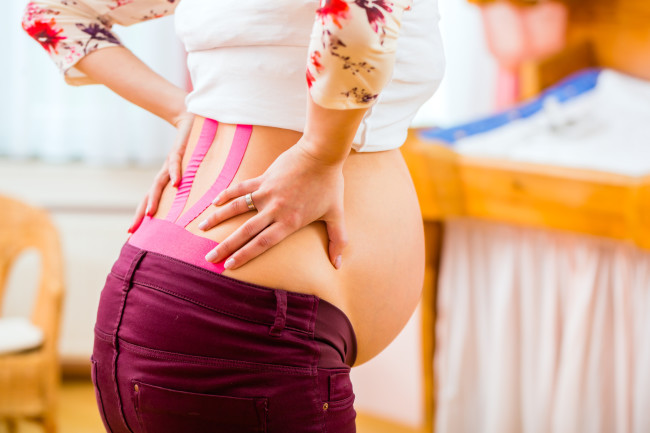Not all pregnant women “glow”. In fact, for some women, pregnancy can bring about an onslaught of uncomfortable physical pains. For these women, struggling to find their “glow”, knowing how to alleviate some of the common pregnancy discomforts can make pregnancy more enjoyable.
1. Minimise the morning sickness
Morning sickness can be a difficult aspect of pregnancy, as the associated nausea and vomiting is both unpredictable and unpleasant. However, learning ways to control it can lead to a more comfortable first trimester
- Try eating small, frequent snacks.
- Avoid strong odours, such as the butcher, the perfume counter, the fish market, a smoky room, etc.
- Keep healthy snacks with you at all times. A small bag of crackers is easy to carry in your purse, and many women find them to be helpful in minimising nausea.
- Some women find it best to eat a piece of toast or similar bland item before getting out of bed in the morning.
- Avoid processed foods and stick to healthy sources of food (protein, complex carbohydrates, lots of green and leafy veggies).
- Ginger, lemon and lavender can help, in tea, aromatherapy or edible forms.
2. Alleviate toilet troubles
Another issue you may find yourself having to deal with, is constantly wanting to urinate. This can cause earlier-than-desired sleep interruptions. If you experience this discomfort, you’ll find it’s usually in effect during the first 13 weeks or so of pregnancy and then again in the third trimester. Don’t dehydrate yourself though; instead, drink a lot during the day but less in the evenings to try and alleviate many toilet trips during the night. Then again, it is a form of training for what’s to come.
Good to know: If you experience burning or stinging sensations when urinating, speak to your doctor; you may have a urinary tract infection.
3. Reduce fatigue, increase energy levels
Tiredness is a common issue for many pregnant women. Use the following tips to better manage your tiredness during the day:
- Learn to love naps. Nap when you’re home, over the weekend, during a lunch break. Again, this is more training for what’s to come! Also, get others to help more with housework, any lifting, shifting, moving heavy items, grocery shopping, etc.
- At work, ask for reduced travel or changed tasks if you feel too tired as a result.
- Avoid going out at nights, as this can increase your tiredness; meet up with friends and family on weekends or for lunch instead.
- If you’re already a mom, nap when the children do. Ask a neighbour or friend to mind the kids for a bit while you catch up on some lost sleep.
4. Manage your back pain
Pregnant women frequently suffer from back pain because of the physical stress of carrying a baby, but there are steps that help better control the discomfort.
- Avoid standing or sitting for long periods of time. If this requires changes in your routine, then ensure that the changes occur.
- Wear flat shoes that provide extra support.
- If you must lift things, always bend from your knees.
- Don’t twist or jerk around, especially not suddenly.
- Get someone else to put other children into carseats.
- Use warm (not hot) baths to relieve backache.
- Use warm heat packs or warm hot water bottles to relieve backache.
- Talk to your doctor if nothing seems to help your back pain.
5. Eliminate heartburn
Take an empty glass and pour an adequate amount of baking soda (approximately a teaspoon) into it. Pour room temperature water into the glass, filling it. This will leave the water a whitish colour. Drink in small amounts, and drink whenever you have heart burn, and/or before a meal or snack.
6. Support those tender breasts
Tender breasts are a common source of discomfort with pregnancy. Fortunately, this settles down for most women after the first trimester.
One of the best things you can do is to go and get your bra checked to ensure that it fits properly. It’s likely you will need to increase the measurement by at least one size. Keep getting checked throughout your pregnancy, as breasts continue to increase in size.
Look for a bra with wide straps, a wide supportive band of fabric under the breasts and made mostly of cotton.
7. Keep the swelling down
Swelling during pregnancy can be a huge source of discomfort. Known medically as edema, this can impact your feet, fingers, legs and ankles.
Often the wedding and engagement rings have to be removed for some of the pregnancy, to accommodate for swollen fingers. This happens because your body is retaining fluid during pregnancy.
Try to sit down and elevate your legs higher than 90 degrees or lie down completely but support your back with a cushion to tilt your back.
- Wear shoes that fit
- Avoid tight clothing of any kind
- Lower or cut out your salt intake
- Drink plenty of water
Source: Article provided by wikiHow, a wiki building the world’s largest, highest quality how-to manual. Please edit this article and find author credits at the original wikiHow article on How to cope with pregnancy discomforts. Content on wikiHow can be shared under a Creative Commons License.
Latest posts by Contributor (see all)
- Autism: Early intervention eliminates developmental delays - October 2, 2014
- Determine the cause of your toddler’s eating habits - October 2, 2014
- Activities to support your three-month-old’s development - October 1, 2014
-
No Comments" href="https://all4baby.co.za/pregnancy/1933/hair-tips-new-moms-moms/">

Hair tips for new moms and moms-to-be
-
No Comments" href="https://all4baby.co.za/pregnancy/nutrition-and-exercise/1739/tips-maintaining-healthy-fitness-routine-pregnancy/">

Tips for maintaining a healthy fitness routine during pregnancy
-
No Comments" href="https://all4baby.co.za/pregnancy/nutrition-and-exercise/1668/dos-donts-exercise-pregnancy/">

Dos and dont’s of exercise during pregnancy
-
No Comments" href="https://all4baby.co.za/pregnancy/pregnancy-symptoms/932/dehydration-pregnancy/">

Dehydration in pregnancy


 Saving...
Saving...